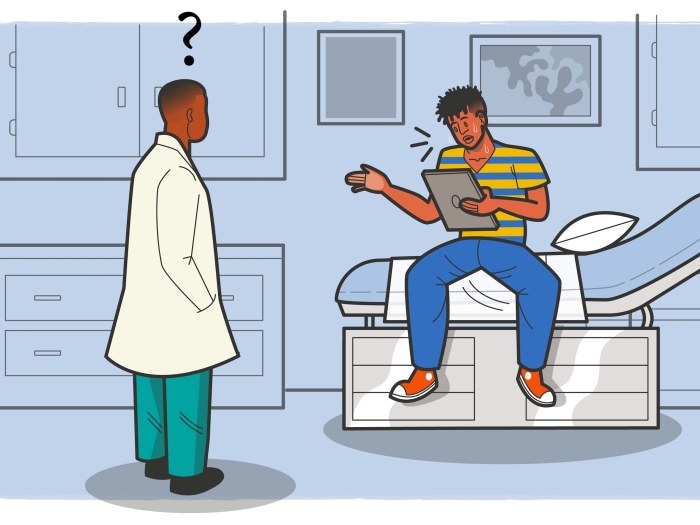2:27 PM
It was the fall of 2010. My first semester as a first year at the University of Michigan. I was pre-med and beyond determined to achieve a fruitful career as a physician. My first undergraduate exam ever was none other than Introductory Chemistry, one of many so-called "weeder classes" on the journey to medical school.
I was confident. I studied day and night, night and day in nervous preparation for what anguish college-level science exams could bring. Especially when your grade is determined only by your performance on few exams.
A week or so later the scores came out. 45%. Yes, you read correctly, 45%. (Almost seven years later, I've since taken countless exams and that's the only score I vividly remember.) Failure didn't even begin to describe how I felt about my performance. I felt incompetent. We all have mishaps and I've scored poorly on past tests, but I never failed anything that badly, especially something that I put considerable time and effort into. I was distraught, but ironically not at the score itself but what that score might imply. It was as if that exam was the fork in the road and the score was supposed to be a sign for me to take the path away from medicine and towards a plan B that I didn't have. I questioned my ability to endure the 'pre-med life' and thus my potential at achieving my lifelong goal of becoming a doctor. If I couldn't get through introductory chemistry then how on earth could I make it through the rest of the science classes?
Something such as failing one general chemistry exam seems so minuscule, doesn't it? It was just one exam. I was probably overreacting, right? Wrong. A story such as mine is not uncommon.
Attrition rates for STEM students are high across the board, regardless of race or ethnicity. The journey to medicine is a long, grueling process and that's the truth. There will be students who do not make it. It takes passion and endurance beyond measuring, but there is this stigma among undergraduate pre-meds that you have to be perfect academically from the moment you leave your mother's womb. Sure, the medical field, from students to physicians, comprises some of the most brilliant individuals with remarkable intellect, but that doesn't exempt us from failure, especially academic failure. Medicine as we know it would cease to exist if our predecessors did not fail. Failure in science is frequent and inevitable.
Pre-med students get discouraged early on from general pre-med classes and from their academic failures. This is nothing new. All it takes is one failure, especially at the start of your first year to feel incompetent. There is this false reality regarding individuals who successfully make it in medicine, especially within minority communities. Students such as myself who have successfully endured the journey of making it into medical school can have their fair share of failures.
But it's only a failure/mistake if you didn't learn or obtain anything from the experience. Failure does not equate to inadequacy. This is something we need to ingrain in every pre-med student's head. I try to refrain from using the words mistake or failure because in reality if you took the time to reflect on it afterward and then took the necessary measures to change the outcome for future events, mistakes turn into 'learning opportunities.'
I looked at that 45% and admittedly came very close to abandoning my dream. I kid you not, I specifically remember calling my mother afterward and telling her that her son, the first in his immediate family to go to college, may not be cut out to be a doctor and that hurt. However, with time I thankfully got motivated and took that 45 % and did everything I could to change my predetermined trajectory. To prepare for the next exam, I sought out free tutoring services on campus, I spent countless hours in my professor's office, I joined study groups, stayed in on weekends and also reached out to upperclassmen who conquered the course prior to me. That 45% of subjective failure on my first exam turned into a 94% glimmer of hope on my second. I'm no genius at all, but rather just zealous, motivated and strong-willed. Here I am now, blessed to have the opportunity to represent one of the top 10 medical schools in the nation with my dreams closer in sight.
Moving forward, retaining motivated students of color interested in medicine who find themselves in doubtful positions such as I was is imperative. Especially if we want to increase diversity within the field. Part 2 of my post will further address my thoughts on representation versus retention.


Department of Communication at Michigan Medicine
Want top health & research news weekly? Sign up for Health Lab’s newsletters today!





